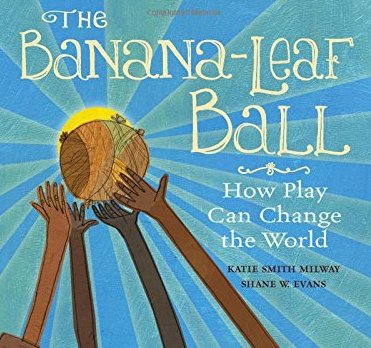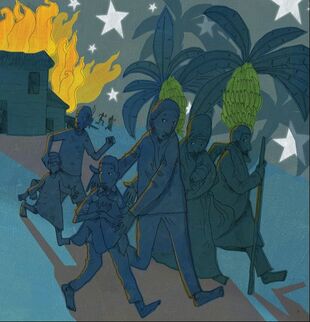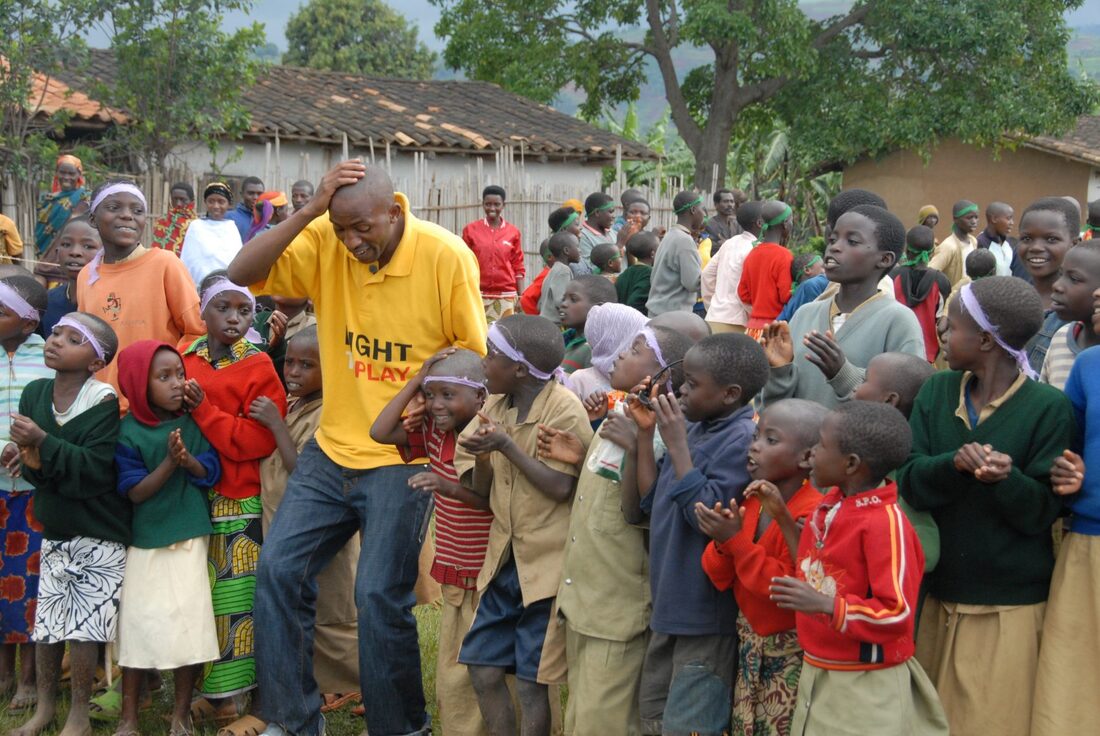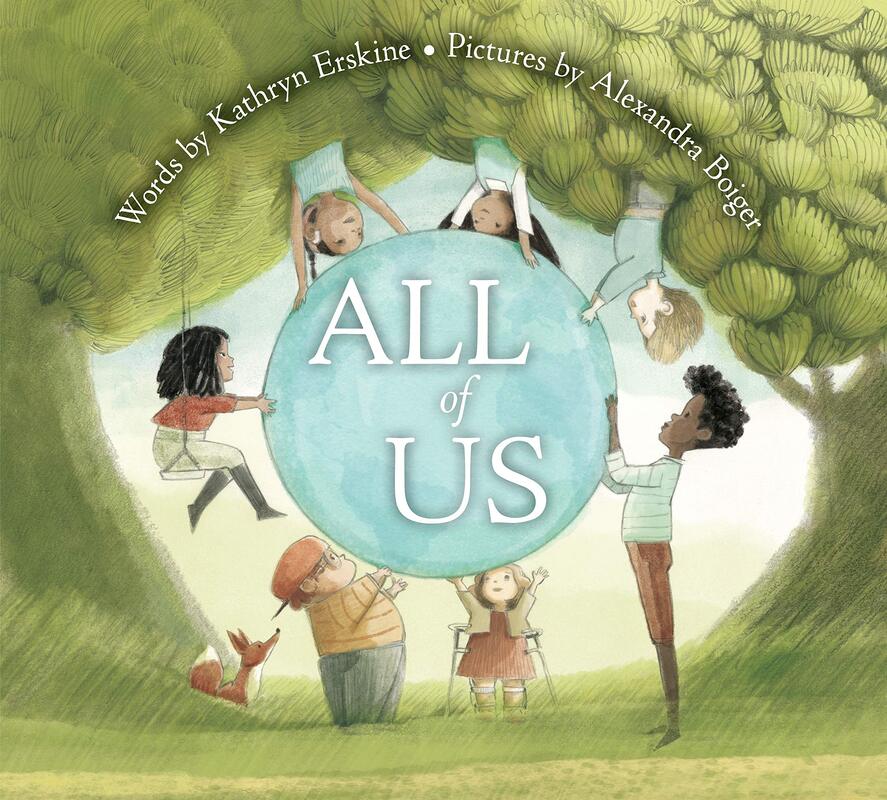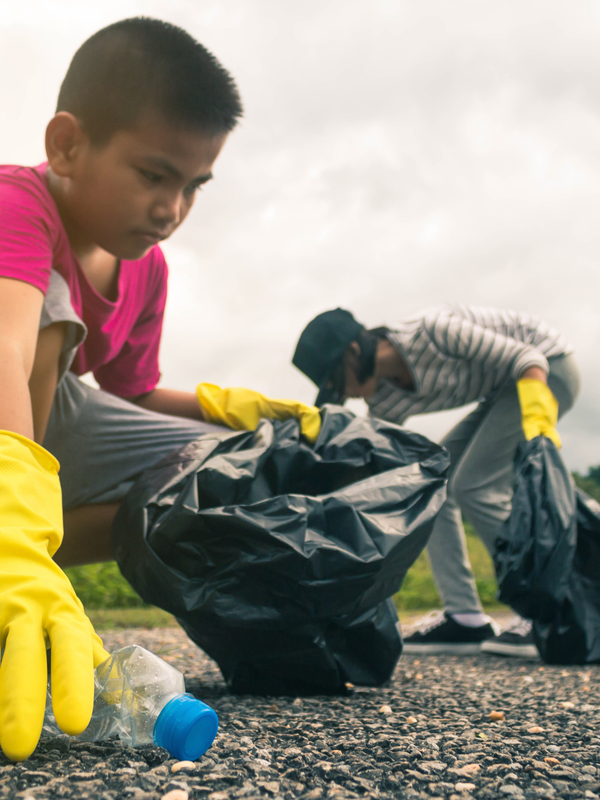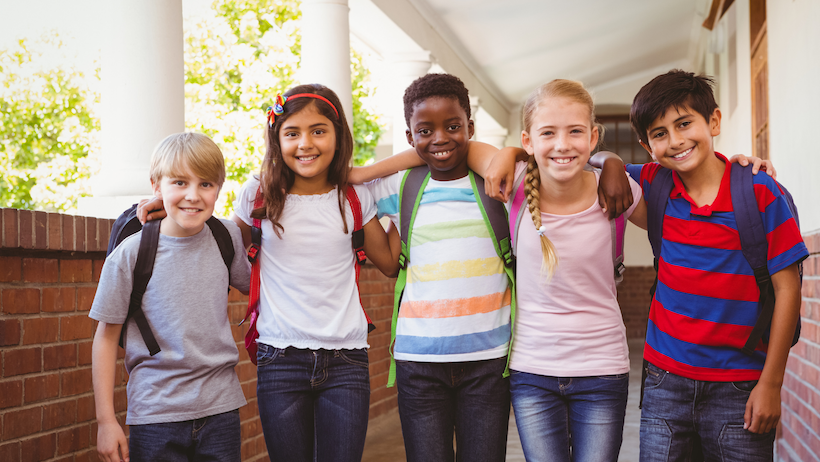The Banana-Leaf BallDeo - the main character in the book - leaves frantically with his family but soon finds himself alone and struggling to survive. The reader is never sure where Deo was fleeing from, but we know he makes it to the Lukole Refugee Camp in West Africa. If you were forced to leave your home quickly what would you bring?
Benjamin NzobonankiraDeo's story in The Banana-Leaf Ball is based on a true story. Benjamin had to flee his home country of Burundi in 1993 when conflict broke out. His journey to Lukole was much like Deo's. While he reunited with his father and some cousins in Lukole, his mother and sister did not survive. It would be through an organization called Olympic Aid, now Right to Play, that Benjamin would work through his grief and start connecting with his new community. Benjamin eventually made it back home. Understanding the power football has to bring kids together, he began coaching. He is now working for the very organization that renewed his life. The Football BridgeProfessional football (soccer) is the most popular sport worldwide. Aside from the estimated 3.5 billion fans, the 2006 World Cup collected 30 billion viewers (accumulated viewing audience across multiple games). Where communication and cultural differences create barriers, football forms bridges! The Banana-Leaf Ball by Katie Smith Milway is a poignant story that shows the power one sport can have to bring people together. But, it's not the only story! The Panyee FC in Thailand is another example. This 5 minute video shares the incredible ingenuity a group of young boys had to form their own football club and build their own pitch; on the water! Finding What Unites UsThe Right To Play's mission is: "To protect, educate and empower children to rise above adversity using the power of play." We all face adversity, it is one of many things that unite us all. While there are many ways to respond to adversity, maybe we should consider the power play can have to rise above it.
0 Comments
Author Kathryn Erskine grew up cross-culturally, splitting her developmental years between Europe, Africa, and North America. Like many Cross Cultural Kids (CCK's) - a person who has lived in or meaningfully interacted with two or more cultural environments for a significant period of time during developmental years - Kathryn had to re-establish a sense of belonging at each school and with each move. She had to cultivate her "we". Have you ever considered that "we" is not possible without "me"? This is one of the many reasons why we love, All of Us. The author starts and ends the book with "me". One little girl, all alone in the world, who introduces the collective possibilities of humankind. Effective Global CitizenshipAnother reason why we love this book, is because we feel it exemplifies our definition of global citizenship and supports our mission to unify school communities. We believe you can be an effective or ineffective global citizen. It is because of this, we champion effective global citizenship, rather than global citizenship. Effective global citizenship requires three elements:
This last criteria may be the most challenging, but is also the most rewarding. It is through our willingness to learn from others that we become more effective. This requires vulnerability and empathy; skills not readily practiced and that cause discomfort. Erskine's UtopiaThe third, and most significant reason we will use and share, All of Us, is because of the vision carried through the story. Erskine's story presents a utopia of unity. She captures the possibility humanity has when we shift our perspective from a local "we" to a global "we". I am sure Kathryn carries challenging memories of division and separation throughout her moves as a child. But, I would hasten to say, she also witnessed unlikely collectives providing a positive impact on this world. I am sure she has seen the potential in specific examples throughout her travels. It is through this lived experience, that All of Us carries an authentic and hopeful message. Ultimately, whether you are a child or adult, this is a beautifully written and illustrated book that provokes greater unity and instills hope. ApplicationCultured Kids boasts the potential for picture books to transform individuals, families, classrooms, and schools. We believe picture books are for all people, all ages, all stages. The right picture book could simplify a message you have been trying to share with your staff, your classroom, or your children. Additionally, the introduction and discussion around picture books can be a refreshing change of pace. It is with this in mind that we have created a book discussion and resource tool for school leaders, educators, and parents. Additionally, while I would encourage you to use this tool to insight change within your school, classroom, or home, I would also encourage you to reflect on your own personal development as well.
Are you fostering effective global citizenship in your students?
Cultured Kids believes there are three criteria to effective global citizenship:
If these key criteria are the identifiable characteristics for an effective global citizen, what are the elements needed to achieve them? I. Identity Development
Identity is a complex topic. There are many facets to our identity and certainly not enough time in the school day, or year, to explore them. But, there are ways to support student identity development without having to dig into the complexities. Cultured Kids creates programs that will help students answer this question: Who Am I?
A recent article: Help Me Discover Who I Am, shares our approach to support identity development. Our primary goal is to increase learner self-curiosity! Our Art & Storytelling Book Club Curriculum provides a fun and engaging environment for learners to explore their identity and increase their sense of belonging. Ultimately, we are interested in finding some foundational aspects of their identity to serve as a foundation while they continue to explore the fixed and fluid aspects of who they are over time. We are intent on developing a level of self-interest and self-curiosity to encourage lifelong learning about themselves. We consider identity development the first step toward effective global citizenship. Without a true understanding of self you can still impact this world in a positive way, but we would argue, you will not be as effective and your impact not as grand. II. Empathy
The understanding and practice of empathy are necessary for effective collaboration and execution.
In 2012, Amos Winter, a mechanical engineering student at MIT, presented at TEDx Boston. In a short presentation Amos shared the impact of his Leveraged Freedom Chair (LFC). Empathy was the driving force behind this new innovation. By putting himself into the shoes of his target audience – wheelchair bound residents in rural Tanzania - he was able to create a functional, repairable, and affordable final product. Empathy was also a key component to stakeholder collaboration. Amos could safely persevere through multiple iterations with colleagues, wheelchair users in Tanzania, local repair shops in Tanzania, and corporate partnerships, before reaching his final product. Our learners have the potential to create a positive impact in this world right now. But, the effectiveness of their impact will depend on the level of empathy they provide one another. Sharing and executing new ideas requires vulnerability. If this vulnerability is not met with empathy, their potential will be disrupted. Effective global citizenship will capitalize on learners’ individual strengths, but it will also challenge weaknesses. The willingness to accept personal discomfort for the sake of their impact will determine the level of effectiveness they will have in this world. III. Belonging
How do you create an environment where students willingly choose discomfort for the sake of impact?
You create a culture of belonging! We define belonging as a learners ability to know and safely share their authentic self with others. If they know who they are (identity) and can safely share with others (accomplished with empathy), then they will be more likely to share challenges, ask for help, or learn a new skill. In addition, learners’ sense of belonging will expand their pool of collaborators, empower them to move forward, and remind them that their peer connections are not dependent on their success. In a recent article: How To Bolster Belonging At Your School, writer Lindsay Lyons shares why belonging is so important and offers some practical ways to support your learners. Personal Example
My own belonging journey has contributed to the passion I have for supporting student belonging. I know first-hand the challenges a child will face if they are unsure of who they are or where they fit in. I feel fortunate, as an adult, to have accepted the opportunity to explore who I am and to bravely share my true self with others.
While I still struggle with this sense of belonging, I am confident enough to lean into the discomfort personal and professional growth offers. Cultured Kids would not be here without them. I am certain I have had to endure more suffering to refine those areas of growth in my life, than enjoy the comfort of utilizing my existing strengths. Effective global citizenship can be exhausting, disheartening, and at times, debilitating. However, as learners persevere through the challenges effective global citizenship offers, their identity, their community, and their impact will grow stronger. As we continue to develop new programs, we will be considering the value self-awareness, self-confidence, and empathy have on our future leaders to be effective global citizens. The Need for Belonging and How We Help It Flourish in Our Schools
Belonging at school is a critical component of student success, academically, socially, and emotionally. However, across the globe, students have been reporting experiencing lower rates of belonging in recent years. Upon reading this, the questions for educators are as follows: How exactly does a student’s sense of belonging impact their life in and out of school? How do I know if my students feel like they belong at school? What can we do to foster a sense of belonging in all of our students? Let’s address those questions now.
Vertical Divider
Defining Professional DevelopmentThe development of any individual, group, or project implies growth, progress, or an advancement from its original form. If you were to look up the definition for professional you would see its most common correlation to that of an occupation.
It goes without saying then, that professional development provides an opportunity for growth or progress in your given occupation. Unfortunately, I think we are overlooking one very significant aspect within our definition of professional. Is the connection to a specific occupation enough to gain development in that area? Just as we consider the obstacles that hinder student learning in the classroom, we should also consider what is standing in the way of educators’ learning. Providing professional development does not automatically yield individual or communal development. Educators must be willing, ready, and eager to be developed. It is for this reason that I prefer to see professional development as an outcome rather than a process. I have defined professional development as: the professional advancement possible when the content, delivery, and participant engagement are aligned. |
�
Categories
All
Archives
September 2023
|
Follow Us
© Cultured Kids Inc.

